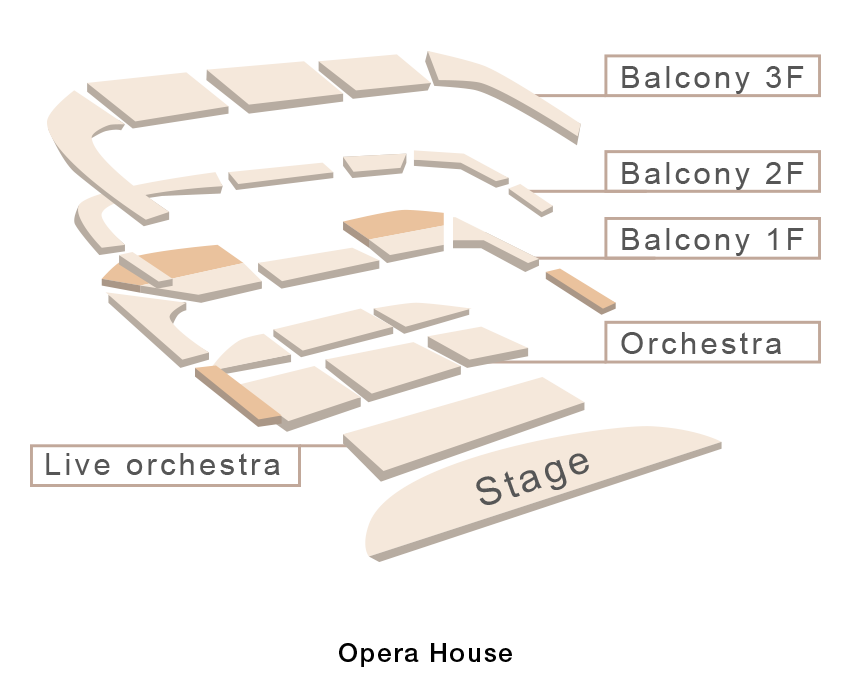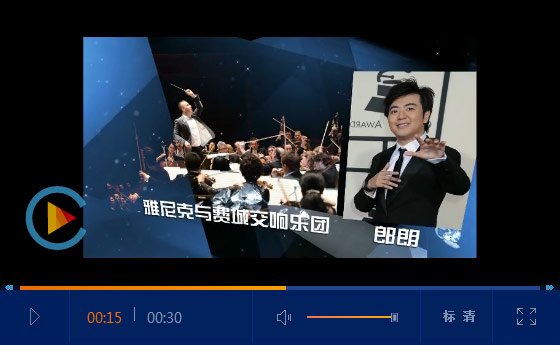| |
Apr. 06 |
Apr. 07 |
Apr. 08 |
Apr. 09 |
Apr. 10 |
|
Tannhauser |
Endrik Wottrich |
Warren Mok |
Endrik Wottrich |
Warren Mok |
Endrik Wottrich |
|
Elizabeth |
Barbara Haveman |
Sun Xiuwei |
Barbara Haveman |
Sun Xiuwei |
Barbara Haveman |
|
Venus |
Giuseppina Piunti |
Zhu Huiling |
Giuseppina Piunti |
Zhu Huiling |
Giuseppina Piunti |
|
Wolfram von Eschenbach |
Markus Werba |
Yuan Chenye |
Markus Werba |
Yuan Chenye |
Markus Werba |
|
Hermann |
Manfred Hemm |
Wei Wu |
Manfred Hemm |
Wei Wu |
Manfred Hemm |
|
Walther von der Vogelweide |
Vicente Ombuena |
Wang Chong |
Vicente Ombuena |
Wang Chong |
Vicente Ombuena |
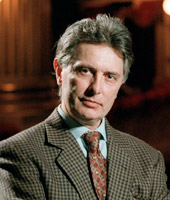
Pier'Alli Director & Stage Designer
Pier Luigi Pieralli (stage name: Pier'Alli) was born in Florence. From 1983 on, his name is linked to the production and most prestigious theaters and musical institutions in the world's most important: Teatro Alla Scala, Teatro Comunale di Bologna, Teatro La Fenice in Venice, Teatro Regio in Turin, Theatre of Rome, Teatro Massimo in Palermo, Teatro Carlo Felice in Genoa, Teatro Regio di Parma, Teatro Bellini in Catania, Rossini Opera Festival in Pesaro, Verdi Festival Parma, Festival of Aix-En-Provence, Lyon Opera, Opernhaus Zurich, Deutsche Oper Berlin, National Theatre of Warsaw, Maestranza The Theatre of Seville, Opera of Los Angeles, The Work of Lille, Palau De Les Arts of Valencia who inaugurated in 2006 with the Fidelio L van Beethoven conducted by Zubin Metha.
His productions include works by Mozart (The Marriage of Figaro, Don Giovanni, The Pretend Simple, The Dream of Scipione), R. Wagner (Rheingold, Die Walküre, Siegfried, Goetterdaemmerung, Tristan und Isolde), Giuseppe Verdi (Il Trovatore, Ernani, Aida, Simon Boccanegra, Oberto Count of San Bonifacio, The Masnadieri, Da Requiem Mass), V.Bellini (I Puritani, Beatrice Tent, The Pirate, The Sonnambula), G.Donizetti (Lucia Di Lammermmor, The Elixir of Love), Rossini (Moses and Pharaoh, Matilda of Shabran, Adelaide of Burgundy), A.Vivaldi (The Nymph Fida), A.Boito (Mefistofele), C.Monteverdi (Il Ballodelle Ingrate) , C.Debussy (Pelléas et Mélisande), CM Von Weber (Der Freischütz), L.Van Beethoven (Fidelio), G.Bizet (Carmen), B. Britten (SLE Parables), F. Scogna (Memory Lost). Calderon de la Barca (The Constant Prince)
He will debut in September 2014 at the National Centre of Performing Arts in Beijing with Bellini's Norma and will open in November, the 2014-2015 season with the Rome Opera with Aida, conducted by Riccardo Muti.
He has collaborated with conductors: R. Muti, Zubin Mehta, Mstislav Rostropovich, Daniele Gatti, Riccardo Chailly, Willy Humburg, George Pretre, Gianluigi.Gelmetti, John Eliot Gardiner, James Conlon.
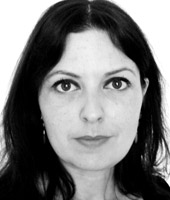
Simona Morresi Costume Designer
Simona Morresi studied costume design at the Liceo Artistico and Studio Arte & Costume in Rome. She has created costume designs for opera and ballet as well as drama productions and been an assistant costume designer for numerous important productions. Her recent designs for operas include Verdi's Aida (Theatro Municipal, Sao Paulo, Brazil) ,Verdi's Oberto conte di san Bonifacio (Teatro del Giglio, Tokyo), Verdi's Il Trovatore (Novaya Opera, Moscow), Puccini's La Bohème (Korea National Opera), Bellini's Norma (Ente Concerti), Verdi's Falstaff (Teatro del Giglio, Tokyo) and Simon Boccanegra (Korea National Opera), Rossini's Il barbiere di Siviglia (Festival de Lima, 2011; Teatro Solis, Montevideo, 2009; Teatro Municipal of Santiago, 2008), Donizetti's Lucia di Lammermoor (Ente Concerti, 2009; Csokonai Theatre in Hungary, 2008), Bellini's I Puritani (Teatro Donizetti in Bergamo, 2008), Cherubini's Medea (Ente Concerti, 2005), etc. Ballets: Medea by G.Schiavoni (Estonian National Theatre, Tallinn 2014), Minkus' Don Quixotte (Opera di Roma, 2010), Hoecke's The Sorcerer's Apprentice and Stravinsky's The Soldier's Tale (both at Festival Armunia, 2003). Plays: Shaffer's L'inganno-Sleuth (2010), Dostoyevsky's Crime and Punishment (Teatro Argentina, 2005), Cocteau's Opium (Teatro dell'Orologio, 2003) and many others.
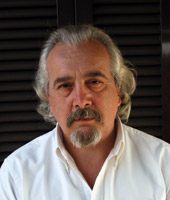
Franco Marri Lighting Designer
Franco Marri graduated from the Academy of Fine Arts in Florence, began his career in the theater in 1977. In 2006 he creates The Cultural Association TAOMArte, engaging in teaching and art.
Dedicating themselves to the design and realization care of the stage lights collaborates with prestigious directors and set designers including:
Luca Ronconi, Lina Wertmüller, Alberto Fassini, Enrico Job, Henning Brokahusen, Pier'Alli, Hugo Tessitore, Jiri Menzel, Stefano Vizioli, Filippo Crivelli, Hugo de Ana, etc.
He has collaborated with many theaters including: Teatro la Maestranza Siviglia, Teatro della Zarzuela Madrid, Teatro Liceo Barcellona, Teatro Eskalduna Bilbao, Teatro Calderon Valladolid. Teatro Coliseu Porto, Teatro S. Carlos Lisbona, Théatre des Champs-élysées Parigi, Teatro Chaillot Parigi, Teatro di Lille, Teatro La Commedie Monpellier, Teatro Capitol Toulouse, Teatro Le Monnaie Bruxell, Teatro Royal de Liegi, Teatro Staatopera di Monaco di Baviera, The Israeli Opera Tel Aviv Arts Center, Teatro Castro Alves Salvador de Bahia, Teatro Colon Buenos Aires, Teatro Regio Torino, Teatro Comunale Bologna, Teatro Comunale Piacenza, Teatro Regio Parma, Teatro Comunale Modena, Teatro Del Maggio Fiorentino Firenze, Teatro Dell'Opera di Roma, Teatro La Fenice Venezia, Teatro Comunale Treviso, Teatro Verdi Trieste, Teatro Lirico Cagliari, Teatro Massimo Palermo, Teatro Massimo Catania, Teatro Vittorio Emanueledi Messina. Rossini Opera Festival di Pesaro, Opera Festival di Macerata, and Festival di Avignone.
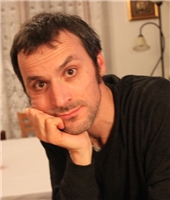
Andrea Mordenti Projection Designer
With a longstanding experience that cames from underground music, independent film and contemporary theatre, Andrea Mordenti, as a lighting and visual designer, operates with the most prestigious Italian and international Opera Theatre in the design, creation and managing of visual and virtual sets. He is the founder and an active member of the media workgroup Unità C1-Visual Environments, active in architechtural mapping, interactive and multimedia installations for corporate and public events, large urban shows, opera,theater, performing arts, museums and exhibitions
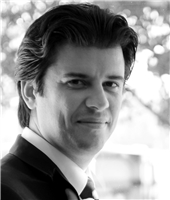
Gianni Stabile Graphic Designer
Graduated in communication science, Stabile operates in all the field of graphic and multimedia production for the performing arts. As a graphic designer he has created images, animations and interactive sets for the most relevant Italian and international opera theatres.
He is the founder and an active member of the media workgroup Unità C1-Visual Environments, active in architechtural mapping, interactive and multimedia installations for corporate and public events, large urban shows, opera,theater, performing arts, museums and exhibitions.
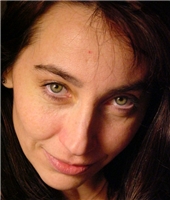
Alessandra Panzavolta Choreographer
Having studied classic and modern dance in the famous Teatro alla Scala in Milan, Alessandra Panzavolta continued her study in and graduated from Royal Academy of Dance in London under the artistic direction of Ms. Margot Fonteyn. While studying music, she also obtained the bachlor's degree in foreign langauge and the humanities. She became a solo dancer when she was 15, and debuted in Tavolo Verde of Joss in Teatro Filarmonico. She has performed in many events and tours in foreign countries in three years mainly including theatres in Italy and Europe.
In 1990, she was recommended by the Ministry of Cultural Heritage and Activities of Italy to perform as the dance representative of Italy in tours from Milan, Rome to Morocco, New York, Moscow and Tokyo. She started her career as a choreographer in Rome Opera House where she cooperated with such artists as Pistoni, North, Kokkos, Pieralli, Pizzi and Laganá. In 1995, she co-authored El Retablo di Maese Pedro and Il Cordovano in Reggio Emilia with Sagi, and re-staged Massenet's opera Werther in the same place. From 1996 to 1997, she was invited to attend the Rossini Opera Festival in Pesaro and Wexford Opera Festival, and directed Carmen for tour performance. In 1998, she participated in Macbeth directed by Riccardo Muti to celebrate the 220 years' inauguration of Teatro alla Scala.
In 1999, she re-staged I Capuleti e i Montecchi for Politeama Theatre in Lecce and Il Barbiere di Siviglia and Le Nozze di Figaro under the cooperation with José Luis Castro and Maestranza Theatre in Siviglia. Between 1995 and 1999, she worked as the Artistic Director of Italy Professional Dance School and a sign language teacher in the mime and drama department of Universitá Cattolica in Milan. Since 2001, she has been the production director of Maestranza Theatre in Siviglia, and involved in direction and chereography. She recently worked in Teatro Olimpico in Vicenza, Teatro Real in Madrid, Teatro Comunale in Modena and Teatro La Fenice in Venice.
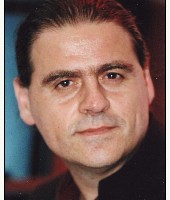
Valentin Vassilev Chorus Master
Valentin Vassilev was born in Bulgaria, a country with large choir tradition. He started his music education with piano and solfege lessons at the age of five. At 19 years old, he received a bachelor diploma in singing at the State Music School in Pleven, Bulgaria, with honor. There he became interested in and started to learn choir conducting. After two years of studies in music pedagogy (1981-1983), Mr. Vassilev was admitted at the National Music Academy in Sofia with 'Choir conducting' as first main subject and Orchestral conducting and Singing as second subject. He has received his Diploma in 1988.
During this time he was a soloist and second chorus-master in one of the famous Bulgaian Choirs 'Madrigal', or 'Kammerchor Sofia'. With this choir he participated 10 years in the 'Bregenzer Festspielen' in Austria; Festival of Sydney in Australia; Avignon in France (Der fliegende Hollander with Jose van Dam as Hollander); many concerts and opera performances in Europe - France, Italy, Spain, Austria, Germany, Switzerland and many CD & TV recordings.
For three years (1990-1993), Mr. Vassilev has been teaching young conductors and leads the Student Choir at the National Music Academy in Sofia. Since 1993 he lives in Switzerland and is a Chorus master and Soloist in Theater Biel Solothurn. Besides, he is a Chorus master at the 'Oper Schenkenberg' (Carmen 2010, Il Trovatore 2013) and at 'Sommeroper Selzach' (Tales of Hoffmann 2012). He also participated at many Festivals - in the botanical garden Basel (Les Brigands, La Cenerentola, Die verkaufte Braut), Oper auf der St. Petersinsel (Mozart and Rousseau), Open air Solothurn. Mr. Vassilev teaches singing, piano and music theory and sings at concerts as a soloist.
Mr. Vassilev has worked with several conductors like Fabio Luisi, Pinchas Steinberg, Marc Soustrot, Sylvain Cambreling, Vladimir Fedoseyev, Rafael Frühbeck de Burgos, Marc Tardue and many others; and Regisseurs: Jerome Savary, Harry Kupfer, David Pountney, Dieter Kaegi, Bruno Berger-Gorski, Anette Leistenschneider etc. In September 2010, the Choir of the Theater Biel Solothurn with his leader Mr. Valentin Vassilev has received an honor for special cultural achievements to the city of Biel, Switzerland.
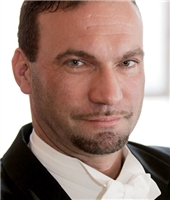
Endrik Wottrich as Tannhauser
Endrik Wottrich was born in Celle in Germany and studied singing and the violin in Würzburg and at New York's Juilliard School of Music. He made his operatic début as Cassio in Otello at the Wiesbaden State Theatre in 1992. From 1993 to 1999, he was a member of the Staatsoper Unter den Linden in Berlin. During this period guest appearances took him to Dresden, Stuttgart, Amsterdam, Chicago, New York, Milan, Madrid, Vienna and Paris, as well as to the Salzburg, Vienna and Edinburgh Festivals. His repertory at this time included Tamino in Die Zauberflote, Alfredo in La Traviata and Erik in Der Fliegende Hollander.
He first appeared at Bayreuth in 1996 as the Young Sailor in Tristan und Isolde and as David in Die Meistersinger von Nurnberg. Since then he has sung Don Carlo (Don Carlo), Froh (Rheingold), Walther von Stolzing (Die Meistersinger von Nürnberg), Siegmund (Die Walküre), Tannhauser (Tannhauser), Erik (Der Fliegender Hollander), Parsifal (Parsifal), Florestan (Fidelio), Lohengrin (Lohengrin) in productions of La Scala, The Royal Opera House, Bonn Opera, Dresden State Opera, the New National Theatre in Tokyo, Teatro Real Madrid, Bayerische Staatsoper München, Deutsche Oper Berlin, etc.
Since 2002 he teaches as a professor at the Hochschulefür Musik in Würzburg. Numerous recordings for labels like DECCA, SONY CLASSIC, TELDEC, EMI, KOCH INTERNATIONAL, CAPRICCIO and CLASSIC PRODUCTIONS and broadcasts document his career.
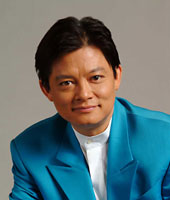
Warren Mok as Tannhauser
He has performed in NCPA's productions of Carmen, Die Fledermaus, La Bohème, The Chinese Orphan, Turandot, and Der Fliegende Hollaender.
A Hong Kong Chinese tenor with a distinguished international career, since his European debut in 1987 at the Deutsche Opera Berlin Mok has been making frequent guest appearances throughout the world, including Deutsche Oper Berlin, Paris Opera, Teatro dell'Opera di Roma, Teatro di Bologna Comunale, Teatro Carlo Felice Genova, Teatro Massimo Palermo, Opera de Nice, Opera de Lyon, Opera Australia in Sydney Opera House, Teatro Colon in Buenos Aires, The Netherlands Opera, Leipzig Opera, Royal Danish Opera, Teatro di San Carlos Lisbon, Seattle Opera, Bolshoi Theatre, Warsaw Opera, Teatro di Caliari in Italy, ABAO Bilbao, Opera Irland, Teatro di Palma di Mallorca, Nancy Opera France, Bergen Opera Norway, Latvian National Opera, Lithuanian National Opera, Orlando Opera, Hawaii Opera Theater, concert halls in New York's Carnegie Hall, London's Royal Albert Hall, Berlin Philharmonie, Vienna Musik Verein, Tokyo Suntori Hall, Seoul, Florida, Prague and Zurich.
His operatic repertoire exceeds 50 roles including Calaf (Turandot), Cavaradossi (Tosca), Rodolfo (La Bohème), Don Jose (Carmen), Riccardo (Masked Ball), Radames (Aida), Duke (Rigoletto), Alfredo (La Traviata), Don Carlos, Romeo, Faust and Werther, Bacchus in Ariadne auf Naxos.
Mok is currently the artistic director of the Macau International Music Festival and founder and artistic director of Opera Hong Kong. He holds a Master of Music degree from Manhattan School of Music.In 2008, Mok was awarded Cavaliere dell'Ordinedella Stella della Solitarita' Italiana (Knight of the Star of Solidarity of Italy) from the Government of Italy and Chevalier dans l'Ordre des Arts et des Lettres from the French Government.(Knight of the Order of Arts and Letters).
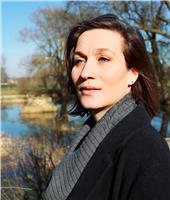
Barbara Haveman as Elisabeth
Barbara Haveman, born in Groningen, the Netherlands, passed her degree at the Maastricht School of Music in 1994. She took classes by Carlo Bergonzi, Renata Scotto and works actually with Catherine Green in New York. She is winner of the following international singing competitions: 1997 - Belvedere Competition in Vienna (third prize) and Concours International de Chant de Verviers (first prize), 1998 - Voci Verdiane in Busseto (first prize).
She has sung roles in La Vida Breve, La Traviata, A Streetcar Named Desire, Don Giovanni, Die Verkaufte Braut, Le Nozze di Figaro, Un Ballo in Maschera, Tannhauser, Simon Boccanegra, King Kandaules, Jenufa, The Queen of Spades, Rusalka, Les Contes d’Hoffmann, Katia Kabanova, Eine Florentinische Tragodie, Ernani, Salomé, Cosi fan Tutte, Moise et Pharaon, Mefistofele, Hérodiade, Die Meistersinger von Nürnberg, La Bohème in Oldenburgische Staatstheater, De Vlaamse Opera, ROH Covent Garden, Volksoper Wien, Hamburg State Opera, Semperoper Dresden, Theater und Philharmonie Essen, Oper Frankfurt, Oper Koln, Deutsche Oper am Rhein Düsseldorf, Deutsche Oper Berlin, Netherlands Opera Amsterdam, Concertgebouw Amsterdam, Gran Teatre del Liceu Barcelona, Budapest National Opera, Israeli Opera Tel Aviv, etc.
Recordings: CD – L.v.Beethoven – 9th Symphony (Altus, Orchestre National de Lyon, conductor J. Markl), DVD – C. Nielsen – Maskerade (production of the Bregenz Festival, stage direction D. Pountney), CD – R. Wagner – Die Meistersinger von Nürnberg (QuattroLive, Radio Filharmonisch Orkest Hilversum, conductor J. v. Zweden), DVD - G. Verdi – Les Vêpres Siciliennes (Opus Arte, production of the Netherlands Opera Amsterdam, stage direction C. Loy, conductor P. Carignani).

Sun Xiuwei as Elisabeth
She has performed in NCPA productions of Turandot, Tosca, Der Fliegende Hollaender, Nabucco, Pagliacci, Norma, Andrea Chenier and NCPA opera commission Rickshaw Boy.
Soprano Sun Xiuwei is Professor of Academy of Opera, Peking Univrsity.She studied with Professor Gao Zhilan and famous soprano Rita Orlandi-Malaspina in Milan, Italy. From 1994 to 1995, she won first prizes in six world class singing contests around the world within less than two years. In 1994, she began her opera career with her first singing engagement of G. Verdi's La Traviata at the Tokyo Opera House. She then sang in Norma, La Traviata, La Forza del Destino, Il Trovatore, Attila, Suor Angelica, Andrea Chenier, Il Corsaro, Macbeth, Turandot, Pagliacci, Requiem, Nabucco and so on. She also sang in Madama Butterfly by G. Puccini, and she has played more than three hundred performances of this opera around the world. She performed in opera houses in Roma, Bologna, Palermo, Trieste, Genova, Venice, Torre Di Lago, Catania in Italy, Berlin, Bonn and Carlsruhe in Germany, Nice in France; Zurich in Switzerland, Bilbao, Spain, Serbia, Washington, Los Angeles, Detroit, and Philadelphia in the United States. She worked with famous artists like Domingo, Gatti, and Nagano.
Ms. Sun has participated in the performance of NCPA opera films Nabucco with maestro Placido Domingo and Turandot with conductor Daniel Oren. She is one of the few Chinese sopranos that are much sought after in Europe.

Giuseppina Piunti as Venus
Born in San Benedetto del Tronto, she completed her musical studies graduating in piano and singing. After winning various international lyric competitions (Marsala, Ostra, Budapest) she makes her debut in 1997 as Alice in Falstaff at Teatro Filarmonico in Verona.
She immediately starts appearing in all the most important Italian Opera houses: Rossini Opera Festival (Signor Bruschino and Tancredi conducted by Gianluigi Gelmetti directed by Pier Luigi Pizzi), Teatro Massimo in Palermo (Mozart's Die Zauberfloete), Rome Opera (Monica in Respighi's La Fiamma conducted by Gelmetti directed by Hugo De Ana, Olga in Giordano’s Fedora opposite Placido Domingo and Giulietta in Les contes of Hoffmann), Teatro Verdi in Trieste (Mayr's Ginevra di Scozia recorded live by Opera Rara within the celebrations for the theatre's bicentennial; Orlowsky in Die Fledermaus, Venus in Offenbach's Orpheus in the underworld, the title role in Costa's Scugnizza, Anna Elisa in Paganini and the title role in Kalman's Grafin Mariza for the Operetta Festival), Teatro Donizetti in Bergamo (Ghost Caffè, a contemporary work by Carlo Galante), Teatro Rendano in Cosenza (Amelia in Rendano's Consuelo).
A regular guest of the Wexford Festival, she appeared there as Monica Respighi's La Fiamma, Delia in Gomes' Fosca and the title role in Massenet's Sapho.
From 2001 she starts a more international career singing Mimi (La Bohème) and Amelia (Un ballo in maschera) in Wiesbaden, Odabella (Attila) at the Opèra de Montpellier and Lecce, Desdemona (Otello) in Detroit, Leonora (Trovatore) in Lima, the title role in Norma in Giessen, Juliette (Les contes d’Hoffmann) and Mimi (La Bohème) in Karlsruhe, Nedda (Pagliacci) in Trieste, Musetta (La Bohème) at the Glyndebourne Festival.
Her recent engagements include Carmen in Giessen, Salerno, Savona, Messina, Toulon and Karlsruhe, Marseille and Bilbao; Norma (Adalgisa) in Mannheim and Bologna; Verdi's Un giorno di regno (Marchesa) in Nancy; Contes d’Hoffmann (Giulietta) in Karlsruhe and, directed by Lindsay Kemp, in Peralada, San Sebastian, Santander and Cordoba; Donizetti's Maria Stuarda (Elisabetta), Mercadante's Il Giuramento, Werther (Charlotte), Cavalleria rusticana (Santuzza), La Favorita (Leonora), Gomez's Fosca and La conquista di Granada in Giessen; The Merry Widow at Teatro Petruzzelli in Bari; Le Roi d'Ys (released on dvd Dynamic) and Ariadne auf Naxos (Komponist) in Liége; Edgar (Tigrana) at Teatro Regio in Turin and Bologna; the world premiere of Tutino's The Servant in Macerata; a Recital in Tokyo, The saint of Bleecker Street and Rossini's Stabat Mater at the Opéra de Marseille, Cavalleria rusticana (Lola) at La Scala with Harding and Martone and at San Carlo in Naples conducted by Pinchas Steinberg.
She opened the 2013/14 season at La Scala as Flora in La Traviata conducted by Daniele Gatti and directed by Tcherniakov, which was broadcast live throughout the world. This was followed by La conquista di Granada in Giessen, Carmen at Teatro Carlo Felice in Genova directed by Davide Livermore and conducted by Andrea Battistoni, at the ABAO in Bilbao and at NCPA in Beijing, Goyescas at Teatro Regio in Turin and Il Tabarro at the Opéra de Tours.
Among her recent and future engagements: Carmen in Beijing and Toulouse, Goyescas at the Opera di Firenze and at Teatro San Carlo in Naples, and her debut as Venus in Tannhauser at the NCPA in Beijing.
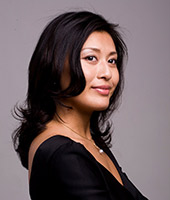
Zhu Huiling as Venus
Zhu Huiling, an excellent mezzo-soprano opera performer, is the art director of the Hamburg Foundation of New-generation Artists. She has been awarded the doctor degree of opera performances by the the State University of Music and the Performing Arts Stuttgart. She once won scholarships from the Maecenas Foundation (Switzerland), Menuhin Foundation (Hamburg, Germany) and Oscar Vera Wright Classical Art Foundation. She once won the second place of the Nagasaki Music Festival, the third place of the Hamburg Mozart Opera Competition, the first place of the singing competition during the Timmendorfer Music Festival (Germany), the first prize of the Alicia Mayer Opera Competition (Germany), and the second prize of the Taev Opera Competition (Estonia). She has ever performed in the Grazer Oper (Austria), Linz Landestheater (Austria), Zurich Opera House, Basel Opera House, Stuttgart State Theatre, Berlin National Opera House, Estonian National Opera House, Helsinki Opera House, etc. She has ever sung many well-known roles such as Desdemona in Othello, Carmen, Maddalena and Contessa Ceprano in Rigoletto, Pamina in The Magic Flute, Lauretta in Gianni Schicchi, Rheintochter in Das Rheingold, Flora in The Lady of the Camellias (La dame aux camellias), Lola in Cavalleria Rusticana, etc. Additionally, she has ever appeared in several concerts in Belgium, Estonia, France, Germany, Italy, Japan, Switzerland, the Great Britain, USA, etc.
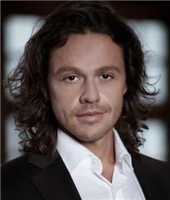
Markus Werba as Wolfram von Eschenbach
Markus Werba began his studies at the Conservatory of Klagenfurt and then went on in Vienna with Walter Berry.
After winning numerous awards he has been engaged for two years by the Vienna Volksoper, where he played the baritone roles in Don Giovanni, The Magic Flute, Don Pasquale, L'Elisir d'Amore, Cenerentola, Die Fledermaus and The Merry Widow.
Since then, he has invited by well-known opera houses and festivals worldwide, such as La Scala, Bayerische Staatsoper, Covent Garden, Vienna Staatsoper, the Met, Teatro Regio,Komische Oper Berlin, Zürich Opera, the Opera Bastille in Paris, the Teatro Massimo in Palermo, the Comunale of Bologna, the Teatro Lirico in Cagliari, Teatro Comunale di Bolzano, Theatre du Capitole de Toulouse and the Salzburg Festival, for productions of Così fan Tutte, Requiem, Capriccio, C Minor Mass, Don Giovanni, Alfonso und Estrella, Die Vogel, Il Barbiere di Siviglia, L'Elisir d'Amore, The Merry Widow, Hans Heiling, Ariadne auf Naxos, The Magic Flute, La Calisto, Faustszenen, Zauberflote, Romeo et Juliette, etc.
Season 2012/13 includes opera performances at La Fenice, Opéra Bastille, Wiener Staatsoper, Salzburg Festival and concerts in Montreal, Rotterdam and Paris.
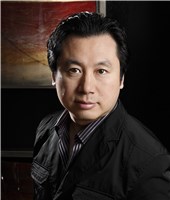
Yuan Chenye as Wolfram von Eschenbach
He performed in NCPA's productions of Rigoletto, Carmen, A Village Teacher, The Chinese Orphan and Nabucco.
Heis the professor of the Voice & Opera Department of the Central Conservatory of Music in Beijing. His operatic engagements include Rigoletto, La Traviata, Aida, Falstaff, Lucia di Lammermoor, L'elisir d'amore, Pagliacci, Carmen, Un Ballo in Maschera, La Boheme, Little Women, and Nixon in China, among others, with such prestigious theatres as Houston Grand Opera, St Louis Opera, Vancouver Opera, Welsh National Opera, Minnesota Opera, Michigan Opera, Palm Beach Opera, San Francisco Opera, Canadian Opera Company, Boston Lyric Opera, Cincinnati Opera,Opere Colorado, and Pittsburgh Opera.Among these engagements, Little Women and Nixon in China were released on DVD and CD by Ondine and Naxos respectively.
Moreover, he has also performed Beethoven's Symphony No. 9, Dvorak's Te Deum, Hadyn's The Creation with companies such as the Philadelphia Orchestra, Chicago Symphony Orchestra, Baltimore Symphony, and Bamberg Symphony. He has held recitals in the U.S.A, Finland, Singapore, Hong Kong, and Beijing. He was the featured soloist in the inauguration ceremony concert for Plácido Domingo as Artistic Director of Washington Opera. He was invited by Mr. and Mrs. Clinton to the White House.
He was the first prize winner of Metropolitan Opera National Council Auditions and the Mirjam Helin International Singing Competition, and the only Chinese to date to win the gold medal of the International Tchaikovsky Competition.
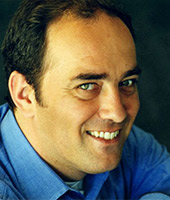
Manfred Hemm as Hermann
Manfred Hemm was born in Vienna, he studied singing at the Conservatory in Vienna and made his opera debut as Figaro in Le Nozze di Figaro in Klagenfurt, he was engaged then in Augsburg and Graz as well as at Staatsoper Vienna where he sang Papageno, Mozart Figaro, Leporello, Talbot etc.
Mainly with Mozart roles like Figaro, Leporello, Masetto, Papageno he sang at MET, Staatsoper Munich, Semperoper Dresden, Opéra Bastille Paris, Deutsche Oper Berlin, Festspiele Bayreuth, Festival Salzburg, Festival Orange, Aix en Provence, Tokyo, Nice, Lausanne, Zurich, Venice, Buenos Aires.
Further guest contracts brought him to Staatsoper Munich (Basilio in Barbiere di Siviglia, Enrico VIII in Anna Bolena), to Helsinki (Basilio), Staatsoper Berlin (Tancredi), Sao Paolo (Verdi Requiem), MET (Masetto), Covent Garden (Der Freischütz), Paris (Der Freischütz), Philadelphia (I Puritani), Festival Glyndebourne (Kezal), Monte Carlo (Maria Stuarda), Sevilla (Mozart Requiem), Pittsburgh (Basilio), New York (Ernani) and Scala Milano (Der Freischütz).
He made his successful debut as Sarastro in San Francisco, as Gurnemanz at Scottish Opera in Glasgow with new contract for his debut as Ochs, he sang in Australia Gurnemanz with Mo. Tate, at Staatsoper Hamburg Leporello, Gurnemanz at a gala performance in Mannheim, Sarastro at a gala in St. Gallen, Osmin in Tel Aviv, Dvorak's Dimitri with Mo. Hickox in Vienna and London, Bruckner's Te Deum with Mo. Pretre at Musikverein Vienna and Maestro in Prima la Musica at the Mozartwochen Salzburg.
He was heard as Ramphis at Scottish Opera in Glasgow, Gurnemanz in Genoa, Rossini Stabat Mater in Goteborg, Frank Martin's Golgotha in Vienna, as Rocco with Mo. Minkowski in Paris, as Peneios in Daphne with Mo. Bychkov in Las Palmas, with Das Buch mit sieben Siegel at Musikverein Vienna and Beethoven Symphony No. 9 in Lisbon.
Recenty he sang Osmin in Turin and Bari, Sarastro in Toulouse and Paris, Mozart Requiem in Palma/Mallorca, Ochs in Oslo, Gurnemanz and Marke with Mo. Kuhn in Erl, Barbiere di Siviglia and I Pulcinella at Festspielhaus St. Poelten, Gurnemanz in Bonn, Rake's Progress (Mo. Harnoncourt) at Theater an der Wien Vienna, Beethoven Symphony No. 9 in Verona, Eremit at Festspielhaus Bregenz, Gurnemanz in Dessau and Winterthur, Ochs in Marseille, and Die Besessenen at Theater an der Wien in Vienna.
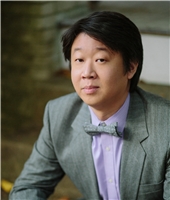
Wu Wei as Hermann
Bass Wei Wu recently made his company debut with the Glyndebourne Festival Opera, covering Osmin in Die Entführung aus dem Serail. Mr. Wu begins his 2015-2016 season singing the Old Hebrew in Samson et Dalila at the NCPA Beijing, a company debut with North Carolina Opera as Bonze in Madama Butterfly and as the Ghost of Nino in Washington Concert Opera’sproduction of Semimirade. Now in his third year with Washington National Opera's Domingo-Cafritz Young Artist Program, the bass' role assignments include covering the role of Zuniga in Carmen,and Wilcox in the World Premiere of Better Gods.
In his first season with Washington National Opera, Mr. Wu made his debut in the world premiere production of The Lion, The Unicorn and Me as the Inn Keeper, Lizard, Ox and The Shepherd, and he also appeared in Breaking, part of the American Opera Initiative. He has also appeared in The Magic Flute as the Second Armored Man at the Kennedy Center. Last season, he appeared as Colline in La bohème, The King in The Little Prince, Javelinot in Dialogues of the Carmelites, covers the Captain in Florencia en el Amazonas, and sings Mr. Shaw in the world premiere Penny. He recently made his debut with Washington Concert Opera in Guntram under the baton of Maestro Antony Walker in March. Mr. Wu recently made his Alice Tully Halldebut singing in concert with performers from China's I Sing Festival, and also debuted with NCPA Beijing as the Four Villains in Les contes d'Hoffman under director Francesca Zambello.
A native of China, the bass first came to the United States as a young artist covering the titular role in the world premiere of Poet Li Bai at Central City Opera in 2007. He also served as the lead cover of Li Bai throughout the production's subsequent tour in Rome, Beijing, Shanghai, Hong Kong, Denver and Los Angeles. While a student at University of Colorado, Wei Wu performed roles including: Figaro in Le nozze di Figaro (University of Colorado), Colline in La bohème (Colorado Springs Philharmonic), Ferrando in Il trovatore and Tom in Un ballo in maschera (China National Opera House), and Don Alfonso (Opera Arkansas).
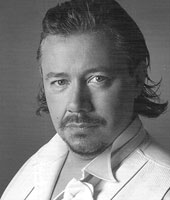
Vicente Ombuena as Walther von der Vogelweide
Vicente Ombuena was born in Valencia, where he studied singing and piano at the Conservatory, he won the 'Placido Domingo' prize at the Vinas competition in Barcelona. His first engagement took place in Mainz, where he sang Erik, Don José and Parsifal. Very soon he had his debuts at Staatsoper Munich (new production Nabucco), at Staatsoper Hamburg (new production Simone Boccanegra) and at Staatsoper Berlin (opera concert), he was then regularly invited back by all three theatres.
Some of the operas which he sang most are: La Traviata, La Boheme, La Vida Breve, Rigoletto, Lustige Witwe, Le Villi, Die Fledermaus, Simone Boccanegra, Turandot, Madam Butterfly, Arlesiana, Le Nozze di Figaro, Lucia, La Fanciulla del West, Il Postino, Death in Venice, Gianni Schicchi, etc. In the Wagner repertoire he sang Steuermann in The Flying Dutchman in Turin, Malaga, Madrid, Las Palmas and Seville, Walther in Tannhauser in Rome, Barcelona, Die Meistersinger von Nurnberg in Barcelona, he was also heard in Spanish operas and Zarzuelas like Goyescas at Festival Savonlinna, Los Pirineos and Gaudi in Barcelona, La Taberna del Puerto in Madrid, Oviedo and Palma/Mallorca.
As regards the concert sector, he sang the Requiem of Verdi and of Mozart, Rossini's Stabat Mater, Beethoven Symphony No. 9, Messa di Gloria (Puccini), with conductors like Abbado, Barenboim, Chailly, Chung, Colin Davis, Gelmetti, Muti, Sinopoli in Chicago, London, Vienna, Madrid, Karlsruhe, Sevilla, Rome, Strasbourg, Siena, Edmonton, Tel Aviv, Catania, Florida, Valencia, Warsaw, he recorded several CDs with a.o. Verdi Requiem, La Traviata, La Fanciulla del West, Cristoforo Colombo and arias/duets with Barbara Frittoli.
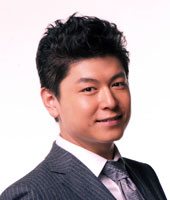
Wang Chong as Walther von der Vogelweide
As a member of NCPA Chorus, tenor Wang Chong has performed a number of roles in NCPA opera productions, including the Messenger (Aida, a concert version co-produced with New National Theatre, Tokyo), the Steersman (Der Fliegende Hollaender), Flavio (Norma), Dr. Caius (Falstaff), and Rodolfo (Guglielmo Tell). An alumnus of the 2014 Merola Opera Program, Wang Chong is a first-year San Francisco Opera Adler Fellow. He performed with the Merola Opera Program excerpts as Goro (Madama Butterfly), Don José (Carmen), and the Duke of Mantua (Rigoletto).
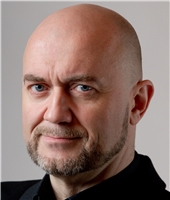
Karsten Mewes as Biterolf
Karsten Mewes studied at the High School for Music "Hanns Eisler" in Berlin with Dr. F. Eckardt, his first contracts brought him to the theatre in Potsdam and to Staatsoper Berlin as well as to Komische Oper Berlin.
Karsten Mewes sang primarily lyric parts such as Silvio, Papageno, Fluth and Graf as well as Figaro in Le Nozze di Figaro and from the Italian repertoire Lescaut, Posa, Ford, Macbeth up to Jago and Scarpia. He was engaged at the opera in Kassel, where he debuted the role of Rigoletto, then he changed to the opera in Mainz, to sing there his first Hollander. His Wagner career started with Melot, Klingsor and Hollander, followed by Alberich in the whole Ring cycle in Saarbrücken, Wotan in Walküre in Trier and both roles of Wotan and Wanderer in the complete Ring production at the opera in Mannheim. 2010 he made his role debut as Hans Sachs in Meistersinger von Nürnberg in Mannheim. 2013/14 he was heard in Mannheim as Kaspar, Leander, Orest, Simone Boccanegra, Scarpia, Falstaff and Klingsor, in Halle as Macbeth and in Vienna as Pizarro and with Bartered Bride. 2014/15 he sang Friedenstag in Kaiserslautern, Mandryka in Halle and Leander in Love for Three Oranges, Falstaff, Kaspar and Wally in Mannheim, 9 Beethoven in Tokyo and Wotan in Ring an einem Abend in Munich.
Guest performances brought him to Salzburg, Bordeaux, Semperoper Dresden, Halle, Bremen, Nürnberg, Kopenhagen, and he debuted at the Festival Bayreuth as Klingsor.
He worked with stage masters such as Christoph Schlingensief, Harry Kupfer, Ruth Berghaus, Christine Mielitz, Jonathan Miller, August Everding and Andreas Homoki and with conductors like Sir Roger Norrington, Sir Collin Davis, Daniel Barenboim, Prof. Reuter, Ottmar Suitner, Fabio Luisi, Donald Runnicles and Dan Ettinger.
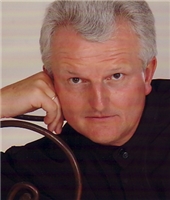
Kurt Azesberger as Heinrich der Schreiber
Kurt Azesberger received his early musical education as alto soloist at the boys' choir school of the St. Florian monastery in Austria, followed by studies with Hilde Rossel-Majdan, Kurt Equiluz and Peter Schreier.
His international career has taken him to the most important venues, where he has especially made a name for his interpretation of the Evangelist in Bach's Passions. On the opera stage Kurt Azesberger's main roles are Tito(La Clemenza di Tito), Aegisth (Elektra) and Hauptmann(Wozzeck). He has sung the role of Froh in Wagner's Rheingold in Catania, Walther von der Vogelweide in Tannhauser at the Accademia di Santa Cecilia in Rome and Narr in Alban Berg's Wozzeck under Claudio Abbado at the Salzburg Easter Festival. The recent seasons were marked by productions like Mozart's Entführung aus dem Serail at Teatro Massimo in Palermo and in Torino, Zauberflote with Sir Colin Davis and the London Symphonie in Madrid and concerts on Schumann's Manfred with Berliner Philarmonikern under Claudio Abbado.
Concerts with music of the 20th century (Zender's Winterreise, Britten's Serenade for Tenor and Horn and The Prodigal Son, Weill's Propheten from Der Weg der Verheibung) as well as recitals at such renowned festivals as the Schubertiade Schwarzenberg are an integral part of his musical career.
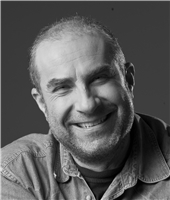
Rainer Zaun as Reinmar von Zweter
Rainer Zaun was born in Wiesbaden, he studied at the Conservatory in Mainz, first guest contracts led him to Kaiserslautern and Detmold, his first fest contract was with the theatre in Wiesbaden, followed by an engagement in Aachen.
He has sung roles in Le Nozze di Figaro, Die Fledermaus, Meistersinger von Nürnberg, Rheingold, Siegfried, Gotterdammerung, Tannhauser, Lulu, Tosca, Wozzeck, Faust, Lohengrin, Don Carlos. His contracts in German took him to to Hannover, Weimar, Mannheim, Bielefeld, Aachen, Braunschweig, Essen, Wiesbaden, Düsseldorf, Stuttgart, State Opera Hamburg, and abroad to Paris, Aix-en-Provence, Lisbon, Tokyo, Athens, Antwerp, Vienna.

Zhang Xin as Shepherd
Zhang Xin is a resident soprano of the National Centre for the Performing Arts. She has sung many soprano roles in NCPA's opera productions and commissions, such as Il Trovatore, Rigoletto, Visitors on the Snow Mountain and Simon Boccanegra.
Zhang Xin took her master degree in vocal music in Conservatorio Arrigo Boito di Parma. Her singing was highly praised by world-known soprano Mirella Freni as having plenty of power and expression. Her repertoire includes Verdi's and Puccini's works and often appears in productions and concerts del Teatro Regio di Parm, Luciano Pavarotti' opera house of Modena and other major opera houses around the world.
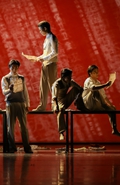 Repertoire
Repertoire
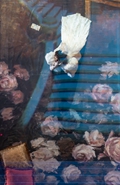 Films
Films
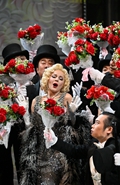 Videos
Videos
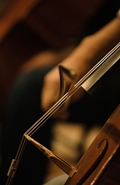 Podcast
Podcast
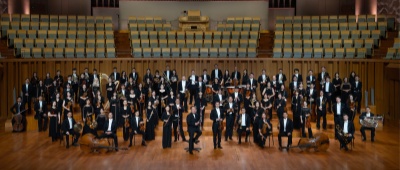 China NCPA Orchestra
China NCPA Orchestra
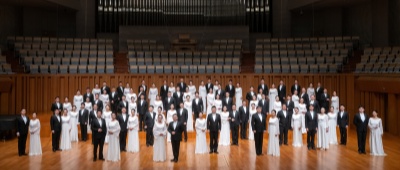 China NCPA Chorus
China NCPA Chorus
 NCPA Resident Singers
NCPA Resident Singers
 NCPA Drama Ensemble
NCPA Drama Ensemble
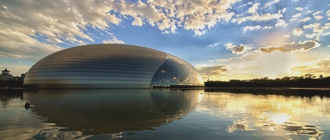 Buildings
Exhibitions
Buildings
Exhibitions
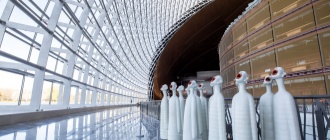 Opening Hours
Services
Opening Hours
Services
 Western Cuisine
NCPA Café
Arts Gifts
Western Cuisine
NCPA Café
Arts Gifts







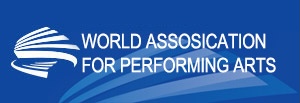
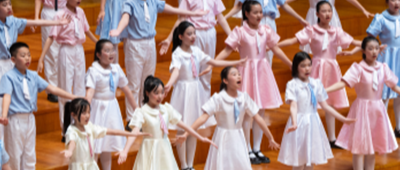
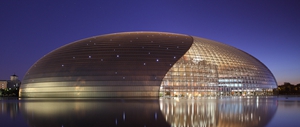
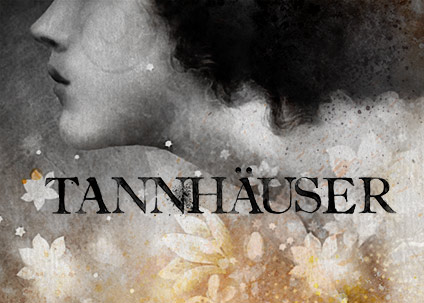





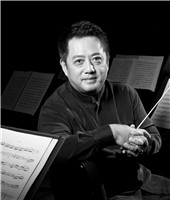























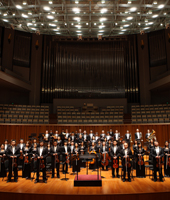
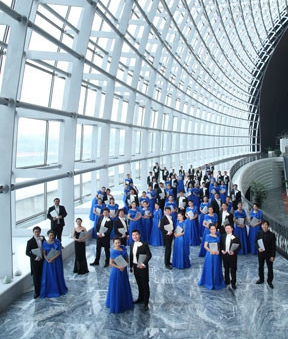
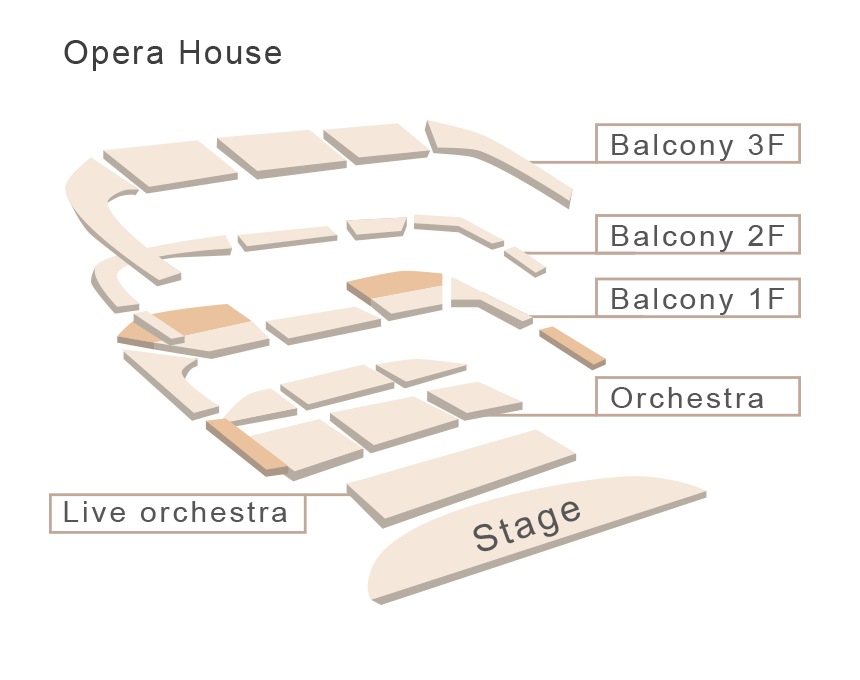 歌剧院
歌剧院
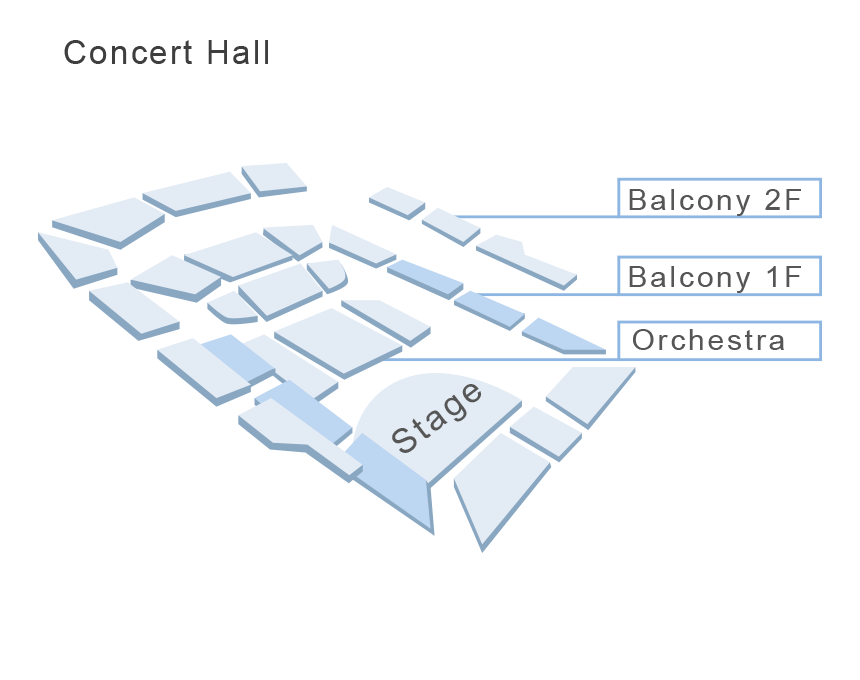 音乐厅
音乐厅
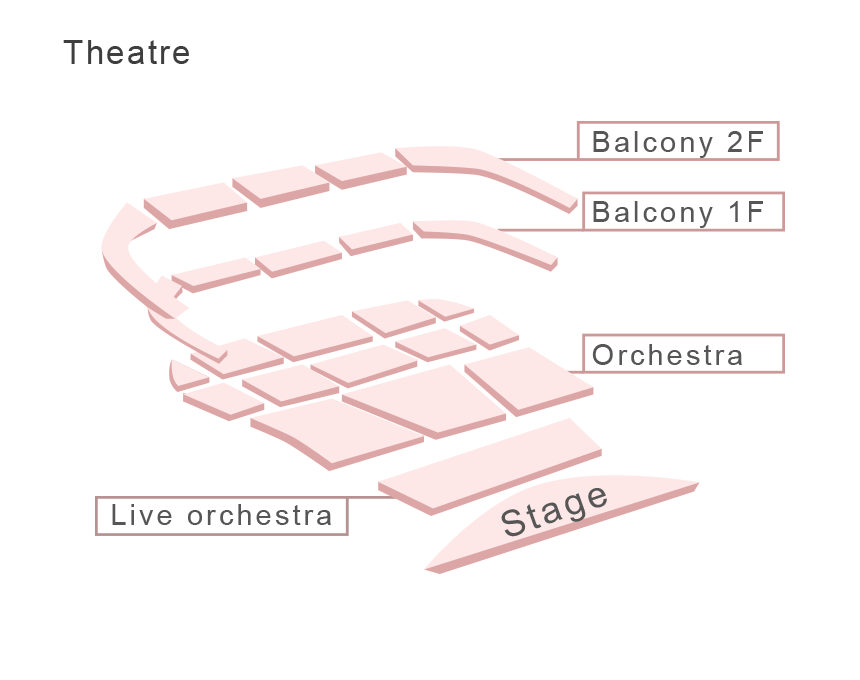 戏剧场
戏剧场
 小剧场
小剧场











